Related Research Articles

Gojong, was the monarch of Korea from 1864 to 1907. He reigned as the last King of Joseon from 1864 to 1897, and as the first Emperor of Korea from 1897 until his forced abdication in 1907. He is known posthumously as the Emperor Gwangmu.
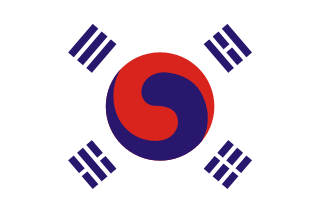
The Korean Empire was a Korean monarchical state proclaimed in October 1897 by Emperor Gojong of the Joseon dynasty. The empire stood until Japan's annexation of Korea in August 1910.

Empress Myeongseong or Empress Myungsung, known informally as Empress Min, was the official wife of Gojong, the 26th king of Joseon and the first emperor of the Korean Empire. She was posthumously called Myeongseong, the Great Empress.
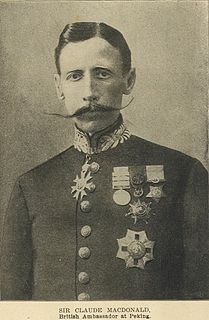
Colonel Sir Claude Maxwell MacDonald, was a British soldier and diplomat, best known for his service in China and Japan.

The Anglican Church of Korea is the province of the Anglican Communion in North and South Korea. Founded in 1889, it has over 120 parish and mission churches with a total membership of roughly 65,000 people.

Horace Newton Allen was a missionary, physician, and American ambassador to Korea. He was the first Protestant missionary in Korea, arriving there on September 15, 1884.

Rev. Henry Gerhard Appenzeller was a Methodist missionary. He and four other missionaries, including Horace N. Allen, Horace G. Underwood, William B. Scranton, and Mary F. Scranton introduced Protestant Christianity to Korea from 1885 to 1902. He was known for his three major contributions to Korea: the Paichai College Hall, the First Methodist Episcopal Church of Seoul, and the translated New Testament.

King Gojong's internal exile to the Russian legation, also called the Agwan Pacheon incident, occurred in 1896 in Korea when King Gojong and his crown prince left the Gyeongbokgung palace to take refuge at the Russian legation in Seoul. The incident resulted in a temporary decline of Japan's influence in Korea and corresponding rise in Russia's influence.
Karl Ivanovich Weber was a diplomat of the Russian Empire and a personal friend to King Gojong of Korea's Joseon Dynasty. He is best known for his 1885–1897 service as Russia's first consul general to Korea.
Germans in Korea have a long history, though they have never formed a significant population.

Durham White Stevens was an American diplomat and later an employee of Japan's Ministry of Foreign Affairs, working for the Japanese colonial office in Korea, the Resident-General. He was fatally shot by Korean-American activists Jang In-hwan and Jeon Myeong-un in one of the first acts of nationalist rebellion by pro-Korean activists in the United States.
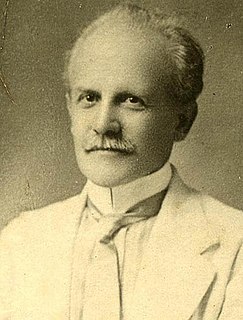
Horace Grant Underwood was a Presbyterian missionary, educator, and translator who dedicated his life to developing Christianity in Korea.
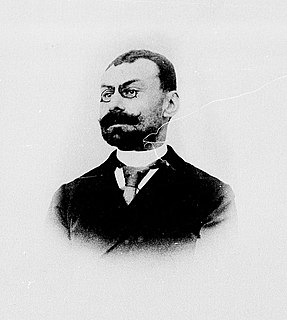
Victor Émile Marie Joseph Collin de Plancy (1853–1924) was a French diplomat, bibliophile and art collector.
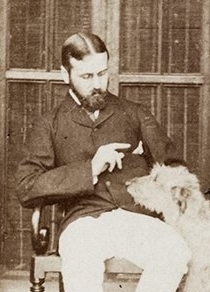
Sir Walter Caine Hillier KCMG CB was a British diplomat, academic, author, Sinologist and Professor of Chinese at King's College London.

The siege of the International Legations occurred in 1900 in Peking, the capital of the Qing Empire, during the Boxer Rebellion. Menaced by the Boxers, an anti-Christian anti-foreign peasant movement, 900 soldiers, sailors, marines, and civilians, largely from Europe, Japan, and the United States, and about 2,800 Chinese Christians took refuge in the Peking Legation Quarter. The Qing government took the side of the Boxers after the Eight-Nation Alliance invaded Tianjin at the Battle of the Taku Forts (1900), without a formal declaration of war. The foreigners and Chinese Christians in the Legation Quarter survived a 55-day siege by the Qing Army and Boxers. The siege was broken by an international military force, which marched from the coast of China, defeated the Qing army, and occupied Peking. The siege was called by the New York Sun "the most exciting episode ever known to civilization."
Chejungwon was founded in Seoul in 1885, and is known as the first Western medical institution in Korea. It affiliated with Yonhee University in 1957, which changed its name to Yonsei University to mark the collaboration. It is now part of the Yonsei University Health System.

Lillias Horton Underwood, born Lillias Stirling Horton, was an American physician and Presbyterian missionary in Korea, alongside her husband Horace Grant Underwood. She served as personal physician to Empress Myeongseong.
References
- Allen, Horace Newton (1901), A chronological index; some of the chief events in the foreign intercourse of Korea from the beginning of the Christian era to the twentieth century, Seoul: Methodist Publishing House Press, OCLC 4391671
- Kneider, Hans-Alexander (2010), "Deutsche Persönlichkeiten im Königreich Joseon", Koreana, vol. 5, no. 1, pp. 84–85, archived from the original on 2010-11-27
- Available in English as: Remarkable Germans in the Choson Kingdom (PDF), Seoul: German Embassy in the Republic of Korea, archived from the original (PDF) on 2011-07-18, retrieved 2010-09-02